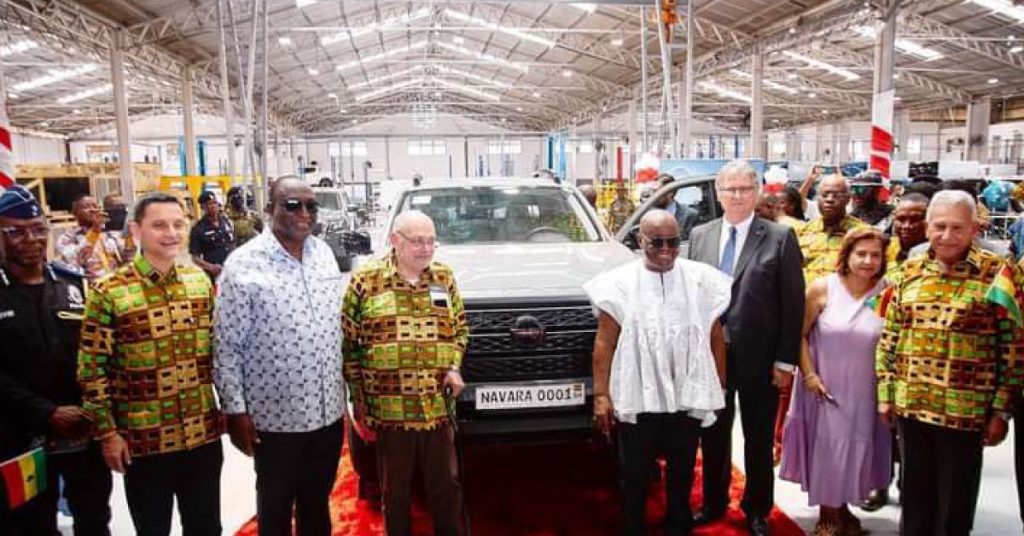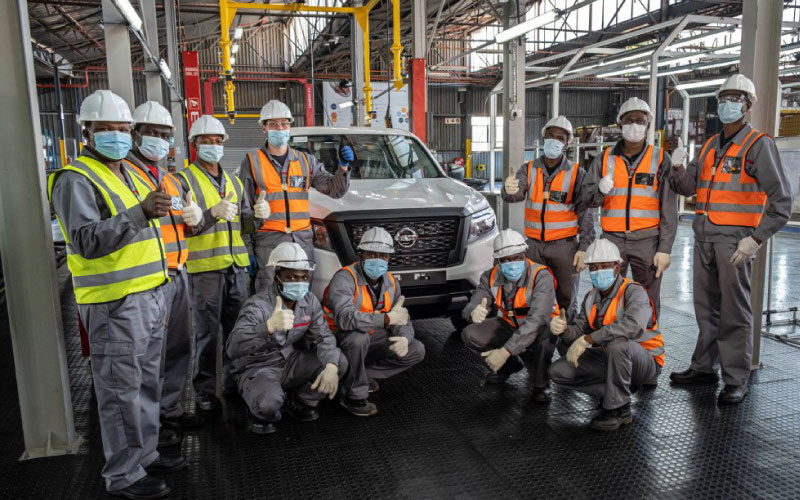- supercars.com.gh
- April 25, 2023
Nissan Motor Corporation has commissioned a state-of-the-art assembly plant in Tema, Ghana. The plant will assemble some of Nissan’s famous brands in Ghana, beginning with the Navara truck. The Nissan Assembly Plant represents a significant milestone in the Government of Ghana’s Automotive Development Policy. The new plant, the largest in the country, will help position Ghana as an automotive center in West Africa.
Nissan Motor Corporation commissioned the Nissan Assembly Plant on 31st March 2022. The plant was unveiled in a colourful ceremony attended by President Nana Addo Danquah Akufo-Addo and Trade Minister Alan John Kyerematen. Nissan Africa’s MD, Mike Whitfield, hailed Ghana’s policy guarantees and commended Japan Motors’ investment in the project.
The Nissan Assembly Plant is a $9m partnership between Japan Motors Trading Company and Nissan Motor Corporation. The plant will initially operate at a third of its capacity to produce around 11,000 units annually. When fully operational, though, the plant’s lines will ramp up production to more than 31,000 per annum, making it Ghana’s largest assembly plant.
The Japan Motors assembly plant sits on 22,000 sqm of land in Tema. Upon inauguration, the plant will start producing both the Nissan Navara and Peugeot 3008 – the latter is being produced on contract basis
There are two assembly lines at the Nissan Assembly Plant in Tema. One line will produce Sports Utility Vehicles (SUVs), while the other produces pickup trucks. The plant has one tester line for quality assessment. The tester line will diagnose issues about brake lights, wheel alignment, and other internal and external flaws.
The Tema factory also features a water recycling unit and a 419-metre-long test track. The track diagnoses problems related to the clutch and brake and will catch flaws that cause noise and vibrations before the vehicle leaves the plant.
Japan Motors’ Nissan assembly plant is the latest in a recent policy drive to attract international car manufacturers to Ghana. Dubbed the Automotive Development Policy, the government aims to position Ghana as an integrated automotive hub in West Africa. Toyota and Volkswagen had commissioned their plants in 2021 with production capacities of 1,330 and 5,000 units respectively.
Establishing more plants across Ghana will create more skilled jobs in the country. Nissan has already committed to training some of its new workers at its South African manufacturing plant.
Exports of assembled vehicles will also boost the nation’s coffers and reduce dependence on imported second-hand vehicles. Moreover, building cars in Ghana will ensure vehicles designed for the local terrain meet the necessary safety standards, improving safety on our roads. The vehicles could also be more affordable and fuel-efficient to meet the local driver’s needs.
With the world moving towards greener fuel alternatives, it would be exciting to see Tesla and other electric car manufacturers establish in Ghana. Having brands like BMW and Mercedes-Benz in Ghana would be a great coup for the country too. The famous German brands combine luxury and durability and would be perfect attractions to Ghana and Africa’s growing middle class.
Check out a brief overview of Ghana’s Automotive Development Policy.
Recent Post
Have Any Question?
If you have a question, call or email us.
We will get back to you as soon as possible!











